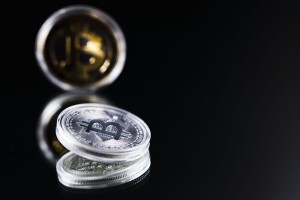Blockchain technology has enabled the tokenizing of real-world assets (RWAs) like real estate, art, and commodities, making these assets more accessible, divisible, and liquid through digital tokens on a blockchain.
This digitization disrupts traditional industries, particularly real estate, where platforms like Blocksquare facilitate fractional ownership, increase liquidity, and widen investment access. RWAs have significantly impacted many sectors, one of the main ones being real estate.
Understanding RWA Tokenization
Real estate, goods, patents, and copyrights are all examples of physical and intangible assets important to the global economy. Tokenization turns these property rights into digital coins that can be stored on a blockchain. This makes trade and proving ownership safe and clear.
This process connects traditional finance to the digital market, making assets more flexible, easy to reach, and clear. Tokenization makes partial ownership possible, making trades easier for more people to enter. It also keeps track of all activities on a blockchain, increasing trust and making it harder to game the market.
RWAs have also caught the attention of big names in the banking world. The CEO of BlackRock, Larry Fink, has boldly said that tokenization will be “the next generation for markets.” During the excitement of Bitcoin’s price changes, I had this realization that points to a bigger change going on below the surface: the tokenization of financial assets could change how we spend in a big way.
According to Fink, every financial object will be tokenized in the future. By 2030, the market for tokenization could be worth up to $10 trillion, according to experts. Tokenizing real estate could speed up the buying and selling of homes by eliminating the need for long title searches and insurance. This would cut costs and transaction times by a large amount.
This is a big step towards a world in which asset management and investments are more open, efficient, and transparent for everyone.
The Innovation Behind RWA Tokenization
Blockchain technology, a safe, decentralized digital record system, is at the heart of RWA’s tokenization invention. This technology ensures that transaction data is clear and can’t be changed. This makes it possible to tokenize assets like art or real estate that have been hard to split or sell quickly in the past. When turned into digital tokens, these assets can be easily traded on digital platforms. These tokens represent ownership or stakes in the real asset.
Smart contracts are an important part of this process because they use code to automate deals so that no agents are needed. This automation reduces mistakes and scams by ensuring that transfers only happen when certain conditions are met. Thanks to this, trading tokenized assets is now safer and more efficient.
Using blockchain and smart contracts to turn RWA into tokens breaks down traditional investment hurdles, making investments easier and letting people own parts of high-value assets. These changes make it easier for more people to invest and lower the bar for new buyers.
RWA tokenization is being used in many fields, from art, which lets people share ownership of works of art, to real estate, where buyers can buy parts of properties, making these trades easier to get into. This shows how RWA tokenization has the ability to change the way investments are made and make more business chances available in many different fields.
Real-World Instances of Real Estate Tokenization
Tokenization infrastructure company Blocksquare has built a platform for digitizing real estate assets, enabling entrepreneurs to tokenize real estate cheaply. This process facilitates the creation of investment marketplaces. Within Blocksquare’s ecosystem, Oceanpoint.fi serves as a conduit to decentralized finance for real estate owners, simplifying the purchase and staking of real estate tokens.
Oceanpoint.fi’s major role is to bring more players to Blocksquare’s ecosystem, raising total value locked (TVL) by improving the liquidity of the tokenized real estate market.
Blocksquare also reached a key milestone by performing the first notarized real estate tokenization, which was integrated with the Slovenian Land Registry. This idea converts real estate into fractional ownership tokens, creating a potential $16 trillion market. These tokens provide a more transparent and safe method to invest in real estate.
With this growth, Blocksquare hopes to expand into new areas, strengthen its blockchain technology, form key alliances, and extend its real estate product offerings. This project is part of a larger trend to use blockchain technology and tokenization in the real estate industry.
However, Blocksquare confronts problems such as complying with various legal regimes, guaranteeing technical compatibility, and gaining market visibility. Despite these challenges, combining Web3 technology with conventional real estate investment presents significant prospects for innovation in how real estate investments are handled and implemented internationally.
Blocksquare also launched the Regional Hubs Programme to encourage competition and cooperation among its ambassadors. This program pays ambassadors to organize events, bring in tokenized real estate, and hire marketplace operators to promote innovation and development in the real estate tokenization industry.
Individuals may apply to be ambassadors for the Regional Hubs Programme and, if accepted, cooperate with peers to build hubs. The program emphasizes the necessity of educating people about the advantages of Bitcoin and real estate tokenization, and it advocates for in-person encounters to create a worldwide community of practitioners.
RWA Tokenization in Action: From Sub-Saharan Farmers to Global Real Estate
There is untapped potential for Africa’s vast agricultural land and the risks posed by climate change to its biodiversity. Over half of the world’s agricultural land is degraded, leading to significant productivity losses and contributing to greenhouse gas emissions.
Despite these challenges, Africa’s agricultural sector, a major employment source and accounting for 35% of its GDP, faces hurdles such as poor land governance, limited financing, and climate impacts, which hinder its growth and necessitate increased food imports.
By overcoming these obstacles, web3 technology and regenerative finance (ReFi) could revolutionize African agriculture. It suggests that tokenizing agricultural real estate could give smallholder farmers access to credit and investment, transforming unproductive assets into funding sources. This approach could democratize investment in agriculture, allowing farmers to adopt sustainable practices and access global financial markets.
Using blockchain to represent physical assets digitally, real estate tokenization could unlock the value of “dead assets” and enable smallholder farmers to raise capital. Projects like HouseAfrica and Shamba Network are already using technology to improve land tenure documentation and enable farmers to access climate finance through tokenized biodiversity credits.
By leveraging natural capital-backed assets and decentralized finance tools, these technologies promise to reduce transaction costs, enhance transparency, and stimulate investments in climate-positive outcomes.
However, successfully adopting Web3 and ReFi in Africa faces challenges, including building trust among investors, educating the public about these new technologies, and establishing supportive regulatory frameworks.
Conclusion
As the use of RWA tokens grows, one of the most important trends is to tokenize complicated assets like infrastructure and environmental credits. This could lead to new investments and better sustainability.
Solving the problems of scaling blockchain for large numbers, ensuring that platforms can talk to each other, and creating legal rules to protect investment in different countries are all necessary.
While regulatory progress varies and some rules are being made, worldwide standardization is still hard to understand. Even though there are problems, the financial sector’s attention shows that investment and asset management could change in a way that makes markets more efficient, open, and easy to access.





